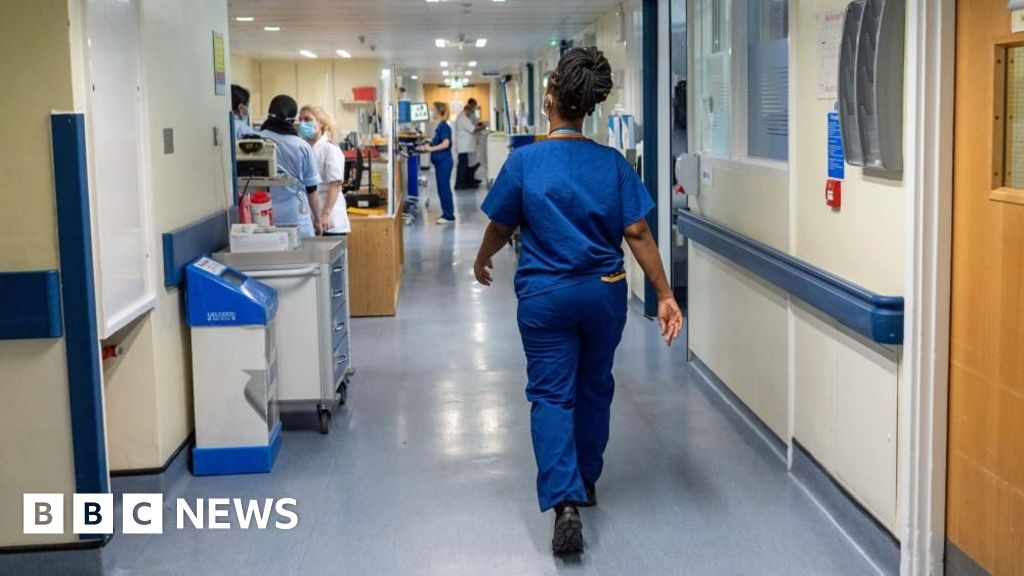A row has broken out between NHS England bosses and the British Medical Association over the level of cover that will be made available during a five-day strike by doctors.
NHS England has ordered hospitals to only cancel non-urgent care, such as hip and knee operations, in exceptional circumstances.
But the BMA has warned this will put patients at risk as it will mean non-striking doctors will be spread too thinly to staff emergency services.
The walkout by resident doctors – the new name for junior doctors – is due to begin at 07:00 BST on Friday.
The BMA has 48,000 resident doctor members, about two thirds of the workforce.
During previous strikes in 2023 and 2024 non-urgent work was cancelled in large quantities so senior doctors could provide cover in emergency and urgent services.
This came after NHS England told hospitals that rescheduling bookings and appointments was going to be “sadly essential” to maintain safe care.
But this new approach is being overseen by Sir Jim Mackey, who became chief executive of NHS England in the spring after Amanda Pritchard stepped down.
Sources at NHS England said he was determined to minimise the disruption, pointing out that cancelling non-urgent work comes at a risk to patients too.
In a letter sent to hospitals managers last week, NHS England said rescheduling should only happen in exceptional circumstances and with its agreement.
Following meetings between NHS England and the BMA, the union has now formally written to Sir Jim saying it is concerned about the approach.
The letter, from BMA leader Dr Tom Dolphin and deputy leader Dr Emma Runswick, says: “It is vital that hospital care must adapt on strike days to the levels of staff available.
“Your decision to instruct hospitals to run non-urgent planned care stretches safe staffing far too thinly.”
It comes as the government and BMA continue talks aimed at averting the strike. Discussions have been ongoing since Thursday.
Resident doctors were awarded an average 5.4% pay rise for this financial year, following a 22% increase over the previous two years.
But the British Medical Association says wages are still around 20% lower in real terms than in 2008 and are demanding “pay restoration”.
Health Secretary Wes Streeting has made clear there will be no extra pay this year, but other aspects are thought to be being looked at including students debts, exam fees and working practices.
If the strike is to be called off it is likely to have to be done before Wednesday morning to avoid major disruption.
Resident doctors took part in 11 separate strikes during 2023 and 2024, leading to the cancellation of hundreds of thousands of outpatient appointments and other hospital procedures.







